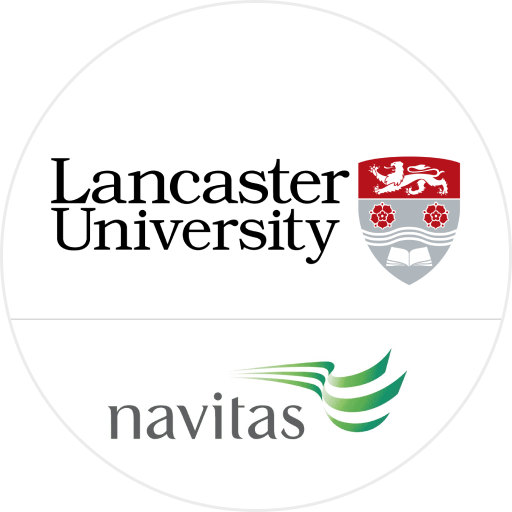• France
Why Study in France
1943 Reads
3 min Read
- Explore a vast array of programs tailored to your passions, from haute couture to cutting-edge engineering.
- Gain a competitive edge with a degree from renowned French institutions and access a thriving job market.
- Embrace the French art de vivre and create unforgettable experiences that will last a lifetime.
Benefits of Studying in France
Studying in France is beneficial for international students as it is known worldwide for its top-class education that helps them understand their field of study both theoretically and practically. It prepares students to thrive in the highly competitive job market worldwide. Below are some of the major benefits associated with studying in France:The Education System
Most French universities offer excellence in education. They are known for producing famous artists, people associated with civil services, industry leaders, engineers, physicists, etc. The cost of studying in France is around 5,000–30,000 EUR annually for undergraduate courses and 1,500–35,000 EUR for master's courses.
With more than a hundred universities, France provides equal education opportunities. Students can avail of subsidised rates for books, food, travel, and accommodation. Students who are from low-income backgrounds get special grants for higher education.
Liberal Education
France was the first nation to separate education from religion. It practices secularism and has an open-minded culture. It doesn’t associate religion with education or those who preach religion. Only a tiny population identifies itself as Catholic. Others, like the rest of Europe, believe in secularism. Thus, unbiased religion makes a firm foundation for higher education in France.
The French Way of Living
The French are not concerned about who you are or what your profession is. They are more interested in knowing your interests, such as what books you read, the places you would like to visit, and your hobbies. The French are passionate about life, and they can turn a coffee desire into an exquisite search for the best in the city. They are amicable, welcoming, and lively too. You will meet many people from different nations in France who have adapted well to the country and enjoy their time studying and getting around.
Cultural Hub
French cuisine is on most restaurant menus. Its cooking involves care and is highly refined. It uses locally grown food items and is prepared with attention to detail. French food is loved throughout the world.
Another famous thing about France is its historical museums and caves, which are cared for by the government. The French government aids its artists in promoting cultures such as theater and painting.
Language and People
Spoken in many countries, such as Canada, Belgium, and Switzerland, there is always a craze for people looking to learn French. About 230 million people in the world speak French. Most French literature is intriguing, poetic, and easy to learn, which is why many people love reading French books. To master French in a short period, consider communicating with as many natives as you can. As for the reading part, it’s not going to be as hard as it is in the Roman script. As you learn some basic French and communicate with the people, you will see that France is a nation that respects and welcomes all for education and exploration.
The Cosmopolitan Culture
France is a republican nation, so don’t be surprised when you see students from many countries studying there. Inexpensive education makes France popular among students. Not only that, but the French industries have hired students at excellent salary packages due to partnerships with universities on many subjects of research.
Nature and Landscapes
France is a beautiful country with famous landscapes and rivers such as the Seine and Rhone. Not to mention other beautiful scenery such as the Alps and Mont Blanc, which are famous among students and people all around as tourist destinations. The cultures, food, architecture, and old traditions of France make it an enthusiastic study-abroad destination.
Cost of Living in France for Indian Students
| Location | Average Monthly Costs |
| Paris | €1,800-€2,500 |
| Other Major Cities | €1,200-€1,800 |
| Smaller cities and rural areas | €800-€1,200 |
| Accommodation | This is typically the largest expense that you will make as an international student in France, apart from the tuition fees. To make it easier on your pocket, consider affordable options such as student residences, shared apartments, and suburban areas. |
| Food | Grocery shopping can be relatively affordable, especially for fresh produce. However, dining out, especially in tourist areas, can be expensive. |
| Transportation | Public transportation in France is generally efficient and affordable. You can also look for student discounts to save money. |
| Utilities | Costs for electricity, water, and internet vary depending on consumption and location. |
| Healthcare | France has a universal healthcare system, but additional coverage might be necessary. |
| Books and Supplies | Costs for textbooks and study material can vary depending on the course. |
Conclusion
FAQ
Get great articles direct to your inbox
The latest news, articles, and resources, sent straight to your inbox every month.
Popular Universities to Study Abroad
World class education waiting for you.

Vancouver Community College - Downtown Campus
British Columbia, Canada • 27 Programmes
Tuition Fee : CAD 16000-29000 / year

North West College - Battlefords Campus
Saskatchewan, Canada • 5 Programmes
Tuition Fee : CAD 15000-17500 / year
.png)
Whitireia and WelTec - Porirua Campus
Wellington, New Zealand • 4 Programmes
Tuition Fee : NZD 25000-28000 / year

Study Group - Western Washington University
Washington, USA • 448 Programmes
Tuition Fee : USD 23500-24000 / year

Navitas Group - Lancaster University
Saxony, Germany • 29 Programmes
Tuition Fee : EUR 17250-22000 / year

Anglia Ruskin University - Peterborough Campus
England, UK • 13 Programmes
Tuition Fee : GBP 13000-17000 / year

Le Cordon Bleu - Sydney Campus
New South Wales, Australia • 10 Programmes
Tuition Fee : AUD 19500-23500 / year

Wilfrid Laurier University - Waterloo Campus
Ontario, Canada • 166 Programmes
Tuition Fee : CAD 22000-29500 / year
Popular English Language Proficiency Exams
Blogs and Articles
Curated content to keep you updated on the latest education trends, news and more.
Ireland Student Visa Process 2025 | Step-by-Step Guide & Requirements
Updated on • Apr 19,2025 03:17 PM IST • Ireland
ACT vs. SAT: Which One to Choose?
Updated on • Apr 14,2025 01:46 PM IST • Study Abroad
Updated on • Apr 11,2025 05:53 PM IST • IELTS
Backlog Certificate: A Complete Guide
Updated on • Apr 11,2025 01:47 PM IST • Study Abroad Guidance
PTE Score Chart 2025: PTE Exam Scoring System & Calculation
Updated on • Apr 09,2025 05:37 PM IST • PTE
Master's in Computer Science in the USA
Updated on • Apr 08,2025 05:59 PM IST • USA
Top Trending MBA Specialisations in 2025
Updated on • Apr 08,2025 04:47 PM IST • Study Abroad
Describe Your Hometown IELTS Speaking Part 1 Topic
Updated on • Apr 07,2025 05:50 PM IST • IELTS
How to Get a Job in USA in 2025
Updated on • Apr 07,2025 03:19 PM IST • USA
Highest Paying Jobs in the World
Updated on • Apr 01,2025 05:31 PM IST • Study Abroad
Student Life in Ireland in 2025
Updated on • Mar 29,2025 05:50 PM IST • Ireland
Top Public Universities in Germany
Updated on • Mar 26,2025 04:33 PM IST • Germany
Top Universities for Masters in Ireland in 2025
Updated on • Mar 25,2025 04:36 PM IST • Ireland
Cost of Living in Singapore for Indian Students in 2025
Updated on • Mar 22,2025 11:57 AM IST • Singapore
PTE vs IELTS : Know the Difference and Which is Easier?
Updated on • Mar 21,2025 03:38 PM IST • IELTS
Updated on • Mar 20,2025 10:19 AM IST • Germany
Updated on • Mar 12,2025 11:20 AM IST • Ireland
Updated on • Mar 11,2025 01:18 PM IST • USA
Best Countries to Study Abroad for Indian Students in 2025
Updated on • Mar 08,2025 01:24 PM IST • Study Abroad
Updated on • Mar 05,2025 12:19 PM IST • UK
Related Blogs and Articles
A little effort to provide an authentic and reliable content for keen readers!!
Accommodation in France for Indian and International Students
Updated on • 14-02-2025 • France
Job Opportunities in France for International Students
Updated on • 06-02-2025 • France
Pros & Cons of Studying in France
Updated on • 04-02-2025 • France
Study in France - Complete Student Guide
Updated on • 31-08-2023 • France











